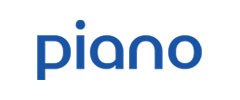Mar. 2, 2020 – London: Piano, a subscription, data management and customer experience technology provider with over 300 major media clients, today announces Piano Zero, an end-to-end solution that empowers zero- and first-party data and enables GDPR and CCPA compliance.
Piano Zero combines the value exchange and identity management tools needed to incentivise and acquire zero-party data and consent, with a first-party DMP to create segments and lookalikes — creating a full set of end-to-end capabilities that will empower media companies in the new data landscape. In the meantime, publishers can still use Piano to implement third-party data, cookie-matching and other technologies as long as they still exist, alongside the zero-party data that’s even more valuable to advertisers.
“There has been a dramatic paradigm shift in the industry, and the latest Chrome third-party cookie news has thrown everyone into a panic,” said Piano CEO Trevor Kaufman. “But our view at Piano is that change is welcome and that there’s no cause for concern. In fact, with the right tools in place, media companies in particular are in an ideal position to benefit from the changes around data usage.
“Piano Zero is the result of a year of development. Compared to Piano Zero, other DMPs only offer partial solutions. While they may have many of the same DMP capabilities, none can provide the ability to collect user data and drive engagement and conversions in the same way” Kaufman said.
Google’s announcement in January that they would end Chrome’s support for third-party cookies within the next two years is just the latest news designed to give users more control over their online privacy. Responding to suspicions around data security and concerns about being tracked across the internet, Safari and Firefox have already started blocking third-party cookies and regulators in Europe and the US are imposing stricter data security regulations like GDPR and CCPA. These changes mean the internet advertising ecosystem is also changing, and will be rebuilt around privacy, consent and user control.
For media companies, data explicitly offered by users will be essential in accomplishing that. This valuable zero-party data — which can include information like an email address and name, gender, age or income filled out in a registration form, or preference selections on a settings page — can be used alongside implicit first-party data like browsing behaviour on a website or app, content consumption habits, location, device and time of day, to drive publishers’ ongoing efforts.
Both data types also have great value in creating user segments for marketing or ad targeting. And Piano Zero is the only DMP that can deliver a unified, platform approach to collecting zero- and first-party data, defining audience segments and using them in the advertising ecosystem.
“We believe the only viable user data source in the future is going to be from registered, consenting individuals,” Kaufman said. “And Piano is the global leader in incentivising user action, with the largest datastore in the world of how content and messaging on media sites influences behaviour. Combining that into a single platform that also meets all publisher audience segmentation needs is unique in the market.”

